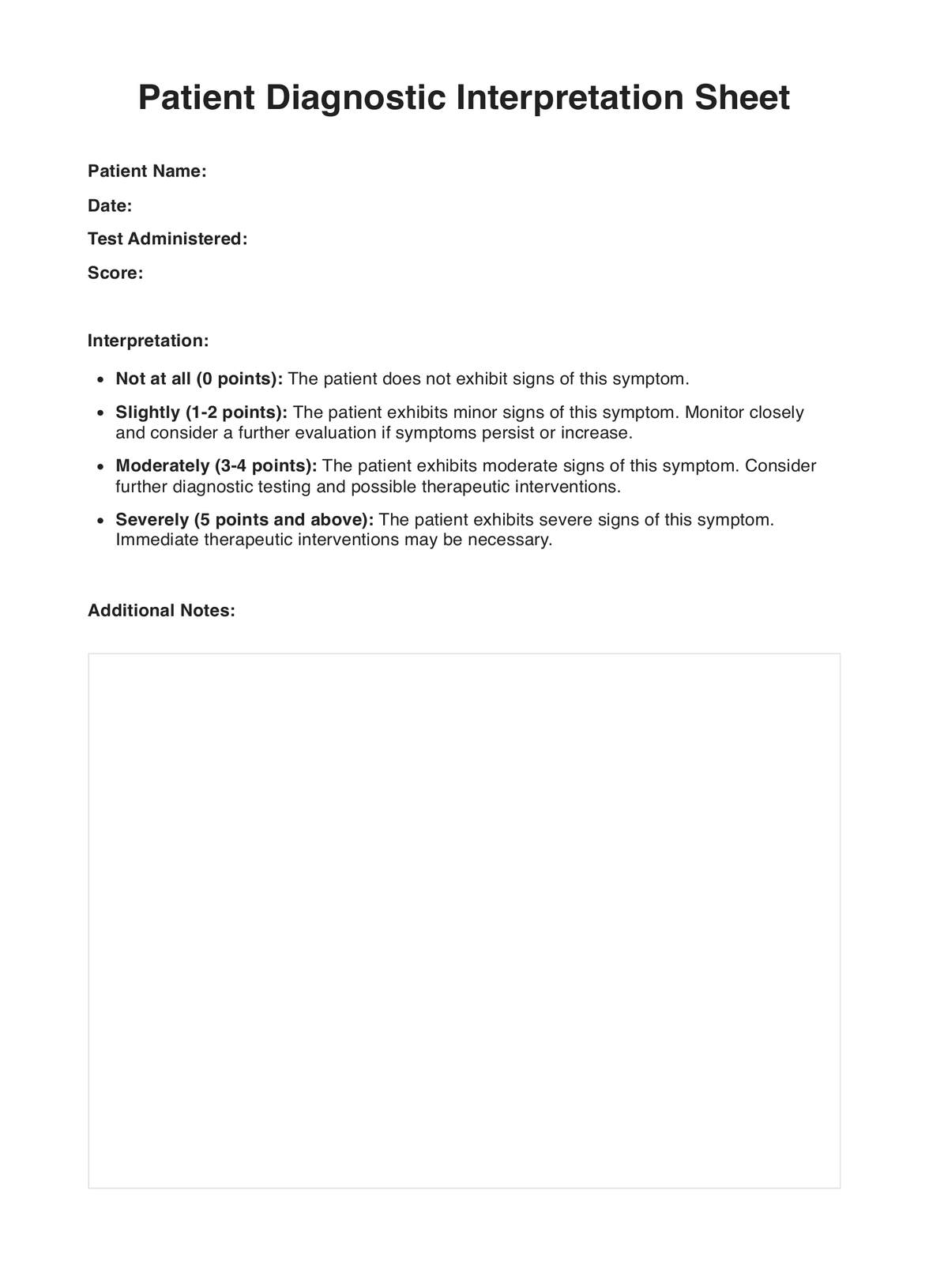The CDS is a self-report questionnaire consisting of 29 items. The time it takes to complete can vary based on the individual, but generally, it should take around 15-20 minutes.

Cambridge Depersonalization Scale
Utilize the Cambridge Depersonalization Scale (CDS) for vital diagnosis and planning of depersonalization treatment.
Cambridge Depersonalization Scale Template
Commonly asked questions
Each item on the scale is rated on a 0-100 scale for frequency and duration. The overall score is calculated by taking the average of all the item scores. Higher scores indicate a greater severity or frequency of depersonalization experiences. A cut-off point of 70 has been suggested for distinguishing individuals with depersonalization disorder from those without psychiatric disorders.
The CDS is used in both clinical and research settings. Clinically, it can help diagnose depersonalization disorder and monitor treatment progress. Research provides a standardized measure of depersonalization that can be used across studies.
EHR and practice management software
Get started for free
*No credit card required
Free
$0/usd
Unlimited clients
Telehealth
1GB of storage
Client portal text
Automated billing and online payments











